
I live in Cape Town’s City Bowl and my home pentad, 3355_1820, is one of my favourite places to go birding. Comprising the Cape Town CBD, a large swathe of Table Mountain and 40 per cent ocean, this pentad wouldn’t strike anyone as being the most bird-rich area in the country. The CBD seems to contain little more than Red-winged Starlings and Rock Doves and the local parks are dominated by dog walkers and tourists. And yet on deeper exploration, it is rich in endemic and scarce species and any birding outing is set against the magnificent backdrop of Table Mountain, urban landscapes and the Atlantic Ocean.
I share the challenges of birding this pentad with Dom Rollinson, who needs little introduction in a South African birding context. But you might not know that he is a fanatical atlaser and is also addicted to birding our home pentad. Beginning in lockdown, we have enjoyed a keen rivalry to discover new birds in the pentad and get high card totals. With just 244 full protocol cards, of which Dom and I have contributed 152, the City Bowl pentad is under-atlased compared to other local pentads, such as Strandfontein (3400_1830) with 1164 cards. This also is reflected in the number of species recorded: 143 from the City Bowl compared to 260 in Strandfontein. Yet we have had some surprising records in recent times, with both regional and national rarities, which is testimony to the value of home patch birding and demonstrates what can be found with diligent exploration.
Fynbos birds are well represented, particularly in montane habitats. Cape Sugarbirds and Orange-breasted Sunbirds are common and conspicuous along Tafelberg Road or the pipe track hiking trail and are joined by Karoo Prinias and the scarcer Grey-backed Cisticolas. Cape
Denne historien er fra September/October 2022-utgaven av African Birdlife.
Start din 7-dagers gratis prøveperiode på Magzter GOLD for å få tilgang til tusenvis av utvalgte premiumhistorier og 9000+ magasiner og aviser.
Allerede abonnent ? Logg på
Denne historien er fra September/October 2022-utgaven av African Birdlife.
Start din 7-dagers gratis prøveperiode på Magzter GOLD for å få tilgang til tusenvis av utvalgte premiumhistorier og 9000+ magasiner og aviser.
Allerede abonnent? Logg på

EXPLORING NEW HORIZONS
Keith Barnes, co-author of the new Field Guide to Birds of Greater Southern Africa, chats about the long-neglected birding regions just north of the Kunene and Zambezi, getting back to watching birds and the vulture that changed his life.

footloose IN FYNBOS
The Walker Bay Diversity Trail is a leisurely hike with a multitude of flowers, feathers and flavours along the way.
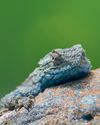
Living forwards
How photographing birds helps me face adversity
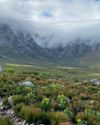
CAPE crusade
The Cape Bird Club/City of Cape Town Birding Big Year Challenge
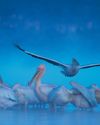
water & WINGS
WATER IS LIFE. As wildlife photographer Greg du Toit knows better than most.
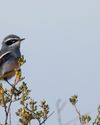
winter wanderer
as summer becomes a memory in the south, the skies are a little quieter as the migrants have returned to the warming north. But one bird endemic to the southern African region takes its own little winter journey.
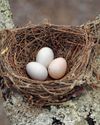
when perfect isn't enough
Egg signatures and forgeries in the cuckoo-drongo arms race

Southern SIGHTINGS
The late summer period naturally started quietening down after the midsummer excitement, but there were still some classy rarities on offer for birders all over the subregion. As always, none of the records included here have been adjudicated by any of the subregion's Rarities Committees.

flood impact on wetland birds
One of the features of a warming planet is increasingly erratic rainfall; years of drought followed by devastating floods. Fortunately, many waterbirds are pre-adapted to cope with such extremes, especially in southern Africa where they have evolved to exploit episodic rainfall events in semi-arid and arid regions. But how do waterbirds respond to floods in areas where rainfall - and access to water - is more predictable? Peter Ryan explores the consequences of recent floods on the birds of the Western Cape's Olifants River valley.
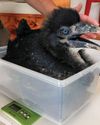
a star is born
It’s every producer’s dream to plan a wildlife television series and pick the right characters before filming.